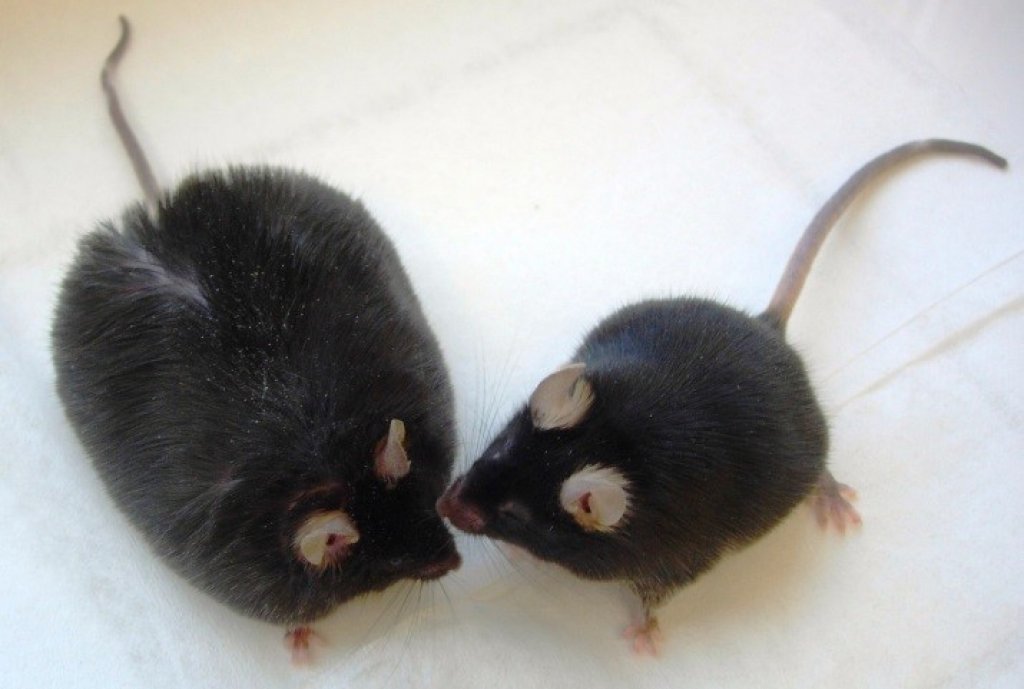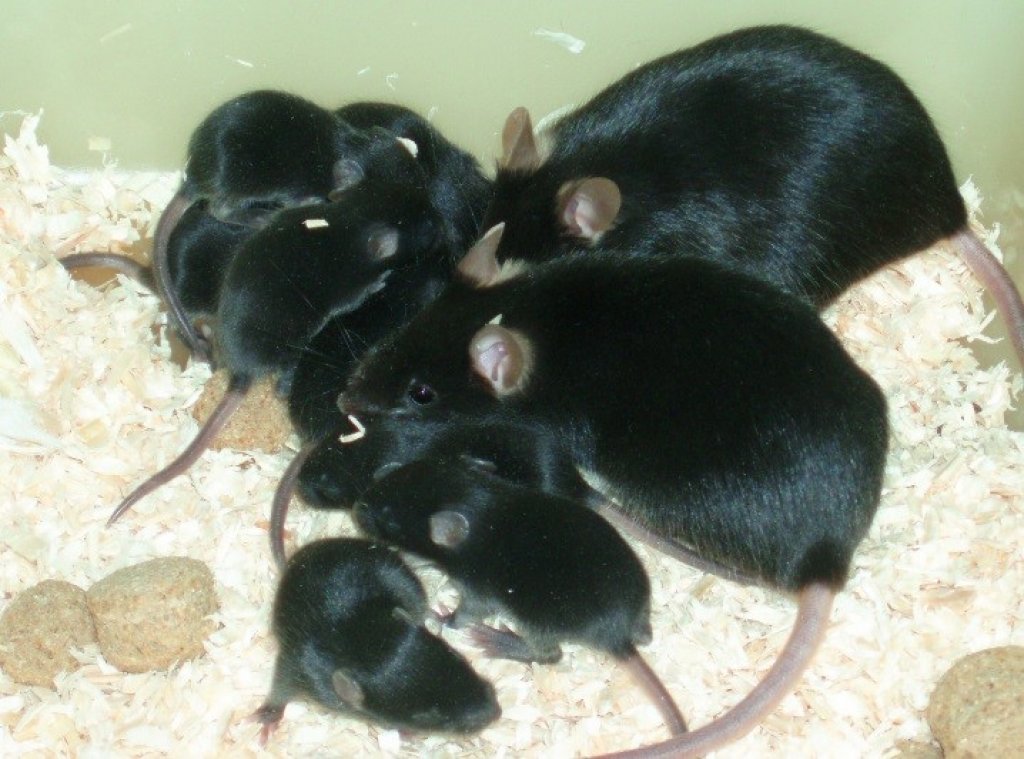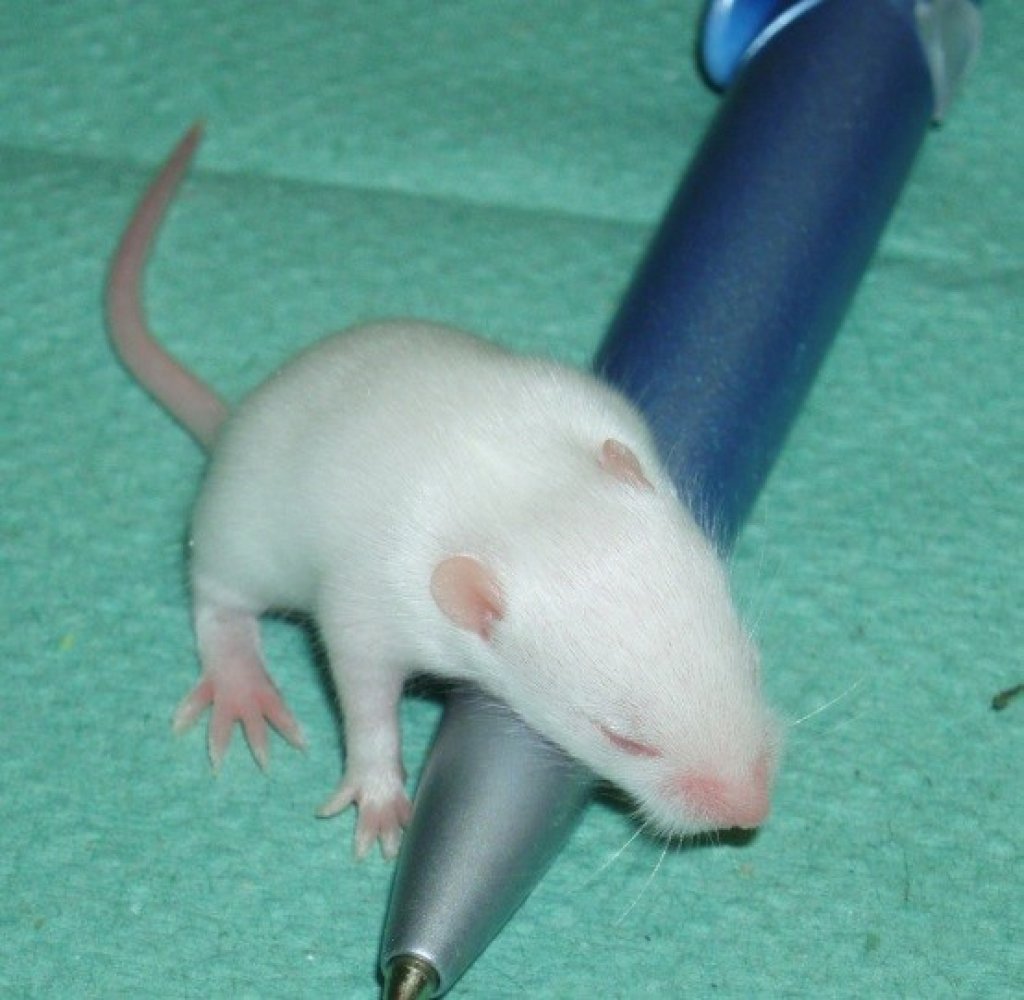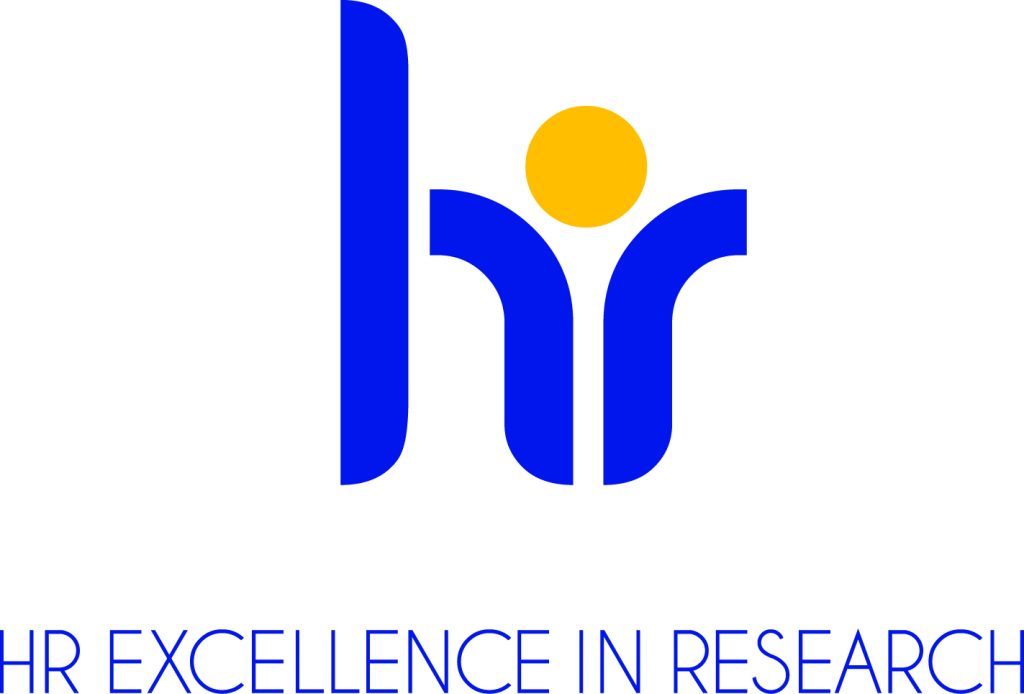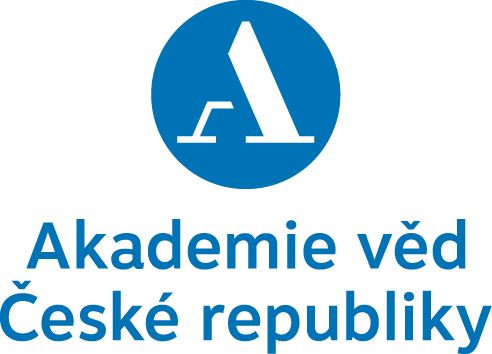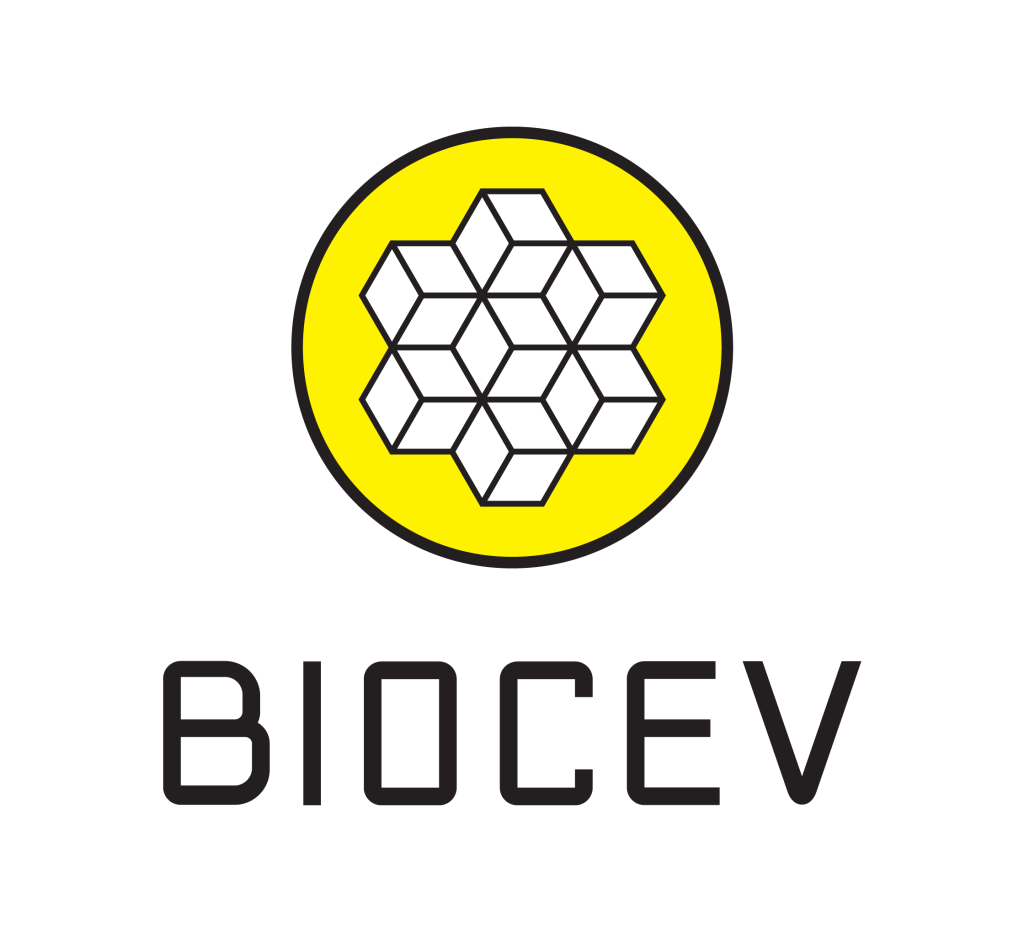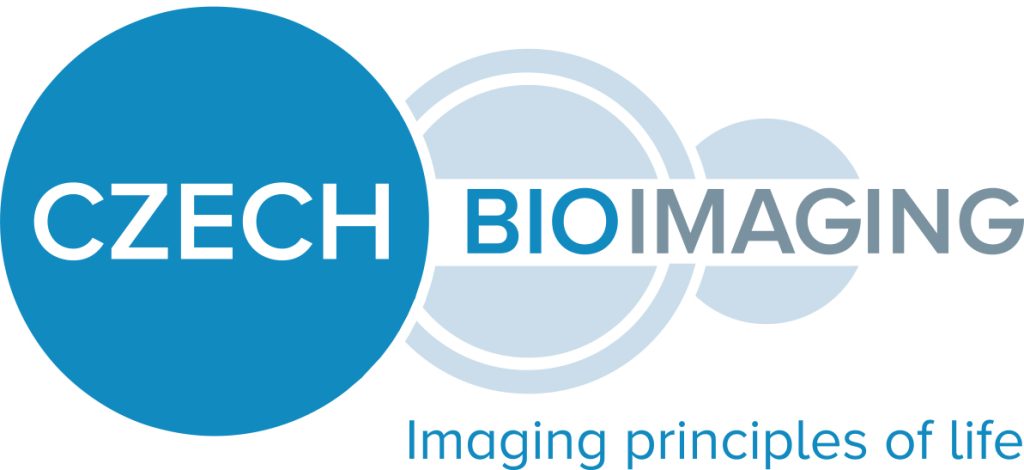Laboratory of Adipose Tissue Biology

Content of this page

We are looking for undergraduate and postgraduate students.
If you are interested, please contact the head martin.rossmeisl@fgu.cas.cz or a specific member of the Laboratory.
See also the information on current calls for PhD students.
About the Laboratory
The Laboratory of Adipose Tissue Biology (Laboratory) is studying physiological regulations of metabolism and their disturbances in obesity and associated diseases (i.e. metabolic syndrome). We investigate the underlying mechanisms by combining experiments in mouse and cell models with clinical trials, with the aim of applying the new findings to clinical medicine (namely in collaboration with IKEM and the 3rd Medical Faculty, Charles University, Prague). Working with manufacturers of test substances in the Czech Republic and Norway, we are also exploring the use of n-3 polyunsaturated fatty acids (omega-3) to enhance the effects of these substances (drugs, etc.) substances in the treatment of selected diseases. The Laboratory consists of two closely collaborating Units that share unique expertise and methodologies and utilize various equipment for whole-body phenotyping of metabolism (e.g. indirect calorimetry, microCT-PET, DEXA, hyperinsulinemic-euglycemic clamps, lipid, glucose and insulin tolerance tests), as well as equipment used to test the body’s response to stress loads of various types (e.g. treadmill, cold chamber).
The Energy Metabolism Unit (PI: J. Kopecký)
focuses on (i) systemic effects of intrinsic white adipose tissue (WAT) metabolism, where it seeks to understand the importance of the “futile” cycle involving triacylglycerol hydrolysis and fatty acid re-esterification (triacylglycerol/fatty acid cycling) in WAT adipocytes for resistance to obesity and related metabolic disorders; (ii) the role of non-shivering thermogenesis in skeletal muscle in thermal and energy homeostasis; (iii) developmental aspects of energy metabolism, its “imprinting” by various factors acting in the perinatal period and in postnatal development in general; and (iv) the role of FGF21 in controlling energy homeostasis. With respect to WAT metabolism, the unit also aims to characterize the role of epicardial WAT metabolism in heart failure and associated cachexia in human patients. In terms of developmental studies, perinatal changes in transcriptome of the heart, skeletal muscle and liver are characterized using a unique biobank of autopsy samples previously collected from human fetuses and neonates.
Core members (without workers on maternity leave):P. Janovská, K. Bardová, P. Zouhar, E. Haasová, S. Stanić, S. Mustafa Poonawala, D. Šálková, J. Burešová
The Glucose Homeostasis Unit (PI: M. Rossmeisl)
focuses on (i) the effects of dietary lipids, especially omega-3 and metabolites derived from them, on glucose and lipid homeostasis and on ectopic fat accumulation in obesity; (ii) mechanisms involved in the development of non-alcoholic fatty liver disease (current term: metabolic dysfunction-associated steatotic liver disease (MASLD)), with a particular focus on autophagy and the therapeutic potential of different chemical classes used for omega-3 supplementation; (iii) the barrier function of the intestine (including gut microbiota) and associated WAT depots in the development/progression of MASLD; and (iv) the role of WAT and its secreted lipokines of the FAHFA family in the effects of exercise on metabolism, using both mouse models and human subjects/patients. For studies using omega-3 supplementation, we rely on previously established collaborations with Norwegian producers of marine omega-3 products such as krill oil, oil from Calanus finmarchicus or various concentrates based on re-esterified triacylglycerols.
Core members: O. Horáková, M. Mitrović, I. Sabinari, K. Seďová, K. Vagnerová
Until 2019, also the Metabolomics Unit (PI: O. Kuda) formed a part of the Laboratory. However, this research unit became an independent Laboratory of Metabolism of Bioactive Lipids at the Institute, based on the “Lumina Queruntur praemium”, a prestigious prize awarded by the Czech Academy of Sciences to O. Kuda.
Ongoing projects
Completed projects
Achievements
Ondřej Kuda won “Lumina Quaeruntur praemium”
In 2018, Ondřej Kuda was awarded the Lumina Quaeruntur praemium for outstanding prospective researchers from the Czech Academy of Sciences.
The Lumina Quaeruntur fellowship was established by the Academy Council of the Czech Academy of Sciences as an instrument to support scientific excellence in the CAS. It is intended to award outstanding prospective researchers in setting up new scientific teams at the research institutes of the CAS to allow developing their science programme focused on conceptually new topics that significantly shift the frontiers of knowledge.
Six award-winning scientists are chosen every year, and Ondřej Kuda was among them in 2018.
Our laboratory as a partner in EU projects
Our laboratory has been a partner in EU projects supported through Cooperation program of the European Community (FP7 and H2020) – BIOCLAMS (2010–2015), DIABAT (2011–2015), and FOIE GRAS.
The Department of Adipose Tissue Biology is involved in extensive cooperation among excellent European laboratories in order to:
- identify markers of healthy development (BIOCLAIMS project; 11 partners);
- describe mechanisms which could increase energy expenditure in adipose tissue and prevent fat accumulation in the body (DIABAT project; 20 partners); and
- analyze the effect of omega-3 administered as phospholipids from Krill oil on non-alcoholic fatty liver disease (FOIE GRAS project; 10 partners).
Especially the DIABAT project corresponds with the long-term strategy of the Department (see Kopecky J et al. 1995 J. Clin. Invest. 96:2914-2923 and review Flachs P et al. 2013. BBA). All projects involve dietary and/or pharmacological experiments on laboratory mice. To reach to goals of these projects, we use complex in vivo phenotyping of animals (including an indirect calorimetry system, hyperinsulinemic-euglycemic clamps, in vivo analysis of body composition, and various tolerance and behavioral tests), advanced analytical tools (metabolipidomic analysis and gene expression screens), and cell culture studies.
List of publications before 2007
For newer papers see section Publications.
2006
1.
Flachs P. – Mohamed-Ali V. – Horáková O. – Rossmeisl M. – Hosseinzadeh-Attar M. J. – Hensler M. – Růžičková J. – Kopecký J.
Polyunsaturated fatty acids of marine origin induce adiponectin in mice fed a high-fat diet.
Diabetologia, 49(2), 394-397, 2006
IF = 5,247(06)
2.
Brauner P. – Kopecký P. – Flachs P. – Kuda O. – Vorlíček J. – Pláničková L. – Vítková I. – Andreelli F. – Foretz M. – Viollet B. – Kopecký J.
Expression of uncoupling protein 3 and GLUT4 gene in skeletal muscle of preterm newborns: possible control by AMP-activated protein kinase.
Pediatric Research, 60(5), 569-575, 2006
IF = 2,619(06)
3.
Kunešová M. – Braunerová R. – Hlavatý P. – Tvrzická E. – Staňková B. – Škrha J. – Hilgertová J. – Hill M. – Kopecký J. – Wagenknecht M. – Hainer V. – Matoulek M. – Pařízková J. – Žák A. – Svačina Š.
The influence of n-3 polyunsaturated fatty acids and very low calorie diet during a short-term weight reducing regimen on weight loss and serum fatty acid composition in severely obese women.
Physiological Research, 55(1), 63-72, 2006
IF = 2,093(06)
2005
1.
Flachs P. – Horáková O. – Brauner P. – Rossmeisl M. – Pecina P. – Franssen-van Hal N. – Růžičková J. – Šponarová J. – Drahota Z. – Vlček Č. – Keijer J. – Houštěk J. – Kopecký J.
Polyunsaturated fatty acids of marine origin upregulate mitochondrial biogenesis and induce beta – oxidation in white fat.
Diabetologia, 48(11), 2365-2375, 2005
IF = 5,337(05)
2.
Šponarová J. – Mustard K. J. – Horáková O. – Flachs P. – Rossmeisl M. – Brauner P. – Bardová K. – Thomason-Hughes M. – Braunerová R. – Janovská P. – Hardie D. G. – Kopecký J.
Involvement of AMP – activated protein kinase in fat depot-specific metabolic changes during starvation.
FEBS Letters, 579(27), 6105-6110, 2005
IF = 3,843(05)
3.
Rossmeisl M. – Kovář J. – Syrový I. – Flachs P. – Bobková D. – Kolář F. – Poledne R. – Kopecký J.
Triglyceride-lowering effect of respiratory uncoupling in white adipose tissue.
Obesity Research, 13(5), 835-844, 2005
IF = 3,972(05)
2004
1.
Matějková O. – Mustard K.J. – Šponarová J. – Flachs P. – Rossmeisl M. – Mikšík I. – Thomason-Hughes M. – Hardie D.G. – Kopecký J.
Possible involvement of AMP-activated protein kinase in obesity resistance induced by respiratory uncoupling in white fat.
FEBS Letters, 569(1-3), 245-248, 2004
IF = 3,843(04)
2.
Rossmeisl M. – Flachs P. – Brauner P. – Šponarová J. – Matějková O. – Pražák T. – Růžičková J. – Bardová K. – Kuda O. – Kopecký J.
Role of energy charge and AMP-activated protein kinase in adipocytes in the control of body fat stores.
International Journal of Obesity, 28(Suppl. 4), S38-S44, 2004
IF = 3,459(04)
3.
Růžičková J. – Rossmeisl M. – Pražák T. – Flachs P. – Šponarová J. – Vecka M. – Tvrzická E. – Bryhn M. – Kopecký J.
Omega-3 PUFA of marine origin limit diet-induced obesity in mice by reducing cellularity of adipose tissue.
Lipids, 39(12), 1177-1185, 2004
IF = 1,679(04)
4.
Kopecký J. – Rossmeisl M. – Flachs P. – Brauner P. – Šponarová J. – Matějková O. – Pražák T. – Růžičková J. – Bardová K. – Kuda O.
Energy metabolism of adipose tissue – Physiological aspects and target in obesity treatment.
Physiological Research, 53(Suppl.1), S225-S232, 2004
IF = 1,14(04)
2003
1.
Rossmeisl M. – Rim J.S. – Koza R.A. – Kozak L.P.
Variation in type 2 diabetes–related traits in mouse strains susceptible to diet-induced obesity.
Diabetes, 52(8), 1958-1966, 2003
IF = 8,298(03)
2.
Liu X. – Rossmeisl M. – McClaine J. – Kozak L.P.
Paradoxical resistance to diet-induced obesity in UCP1-deficient mice.
Journal of Clinical Investigation, 111(3), 399-407, 2003
IF = 14,307(03)
3.
Škárka L. – Bardová K. – Brauner P. – Flachs P. – Jarkovská D. – Kopecký J. – Ošťádal B.
Expression of mitochondrial uncoupling protein 3 and adenine nucleotide translocase 1 genes in developing rat heart: putative involvement in control of mitochondrial membrane potential.
Journal of Molecular and Cellular Cardiology, 35(3), 321-330, 2003
IF = 4,954(03)
4.
Brauner P. – Kopecký P. – Flachs P. – Ruffer J. – Sebroň V. – Plavka R.CZ – Vítková I. – Vorlíček J. – Kopecký J.
Induction of uncoupling protein 3 gene expression in skeletal muscle of preterm newborns.
Pediatric Research, 53(4), 691-697, 2003
IF = 3,064(03)
2002
1.
Kopecký J. – Flachs P. – Bardová K. – Brauner P. – Pražák T. – Šponarová J.
Modulation of lipid metabolism by energy status of adipocytes: implications for insulin sensitivity.
Annals of the New York Academy of Sciences, 967(-), 88-101, 2002
IF = 1,682(02)
2.
Flachs P. – Novotný J. – Baumruk F. – Bardová K. – Bouřová L. – Mikšík I. – Šponarová J. – Svoboda P. – Kopecký J.
Impaired noradrenaline-induced lipolysis in white fat of aP2-Ucp1 transgenic mice is associated with changes in G-protein levels.
Biochemical Journal, 364(2), 369-376, 2002
IF = 4,589(02)
3.
Villena J.A. – Carmona M.C. – Rodriguez de la Concepcion M. – Rossmeisl M. – Vinas O. – Mampel T. – Iglesias R. – Giralt M. – Villarroya F.
Mitochondrial biogenesis in brown adipose tissue is associated with differential expression of transcription regulatory factors.
Cellular and Molecular Life Sciences, 59(11), 1934-1944, 2002
IF = 5,259(02)
4.
Rossmeisl M. – Barbatelli G. – Flachs P. – Brauner P. – Zingaretti M.C. – Marelli M. – Janovská P. – Horáková M. – Syrový I. – Cinti S. – Kopecký J.
Expression of the uncoupling protein 1 from the aP2 gene promoter stimulates mitochondrial biogenesis in unilocular adipocytes in vivo.
European Journal of Biochemistry, 269(1), 19-28, 2002
IF = 2,999(02)
2001
1.
Kopecký J. – Rossmeisl M. – Flachs P. – Bardová K. – Brauner P.
Mitochondrial uncoupling and lipid metabolism in adipocytes.
Biochemical Society Transactions, 29(6), 791-797, 2001
IF = 1,402(01)
2.
Brauner P. – Nibbelink M. – Flachs P. – Vítková I. – Kopecký P. – Mertelíková I. – Janderová L. – Pénicaud L. – Casteilla L. – Plavka R. – Kopecký J.
Fast decline of hematopoiesis and uncoupling protein 2 content in human liver after birth: location of the protein in Kupffer cells.
Pediatric Research, 49(3), 440-447, 2001
IF = 3,289(01)
2000
1.
Rossmeisl M. – Syrový I. – Baumruk F. – Flachs P. – Janovská P. – Kopecký J.
Decreased fatty acid synthessis due to mitochondrial uncoupling in adipose tissue.
FASEB Journal, 14, 1793-1800, 2000
IF = 9,249(00)
1999
1.
Baumruk F. – Flachs P. – Horáková M. – Floryk D. – Kopecký J.
Transgenic UCP1 in white adipocytes modulates mitochondrial membrane potential.
FEBS Letters, 444, 206-210, 1999
IF = 3,72(99)
1998
1.
Štefl B. – Janovská A. – Hodný Z. – Rossmeisl M. – Horáková M. – Syrový I. – Bémová J. – Bendlová B. – Kopecký J.
Brown fat is essential for cold-induced thermogenesis but not for obesity resistance in aP2-Ucp mice.
American Journal of Physiology, 274(3, čá), E527-E533, 1998
IF = 3,077(98)
2.
Hodný Z. – Kolářová P. – Rossmeisl M. – Horáková M. – Nibbelink M. – Penicaub L. – Casteilla L. – Kopecký J.
High expression of uncoupling protein 2 in foetal liver.
FEBS Letters, 425(2), 185-190, 1998
IF = 3,581(98)
3.
Brauner P. – Pavelka S. – Kopecký J.
Elaboration of methods for the determination of iodothyronine deiodinase activities of type I, II and III in different tissues.
Chemical Papers, 52, 385-386, 1998
IF = 0,156(98)
4.
Pavelka S. – Kopecký J. – Brauner P.
Characterization of tissue metabolism of thyroid hormones in very premature infants.
Chemical Papers, 52, 387-388, 1998
IF = 0,156(98)
1997
1.
Pavelka S. – Kopecký P. – Bendlová B. – Štolba P. – Vítková L. – Vobruba V. – Plavka R. – Houštěk J. – Kopecký J.
Tissue metabolism and plasma levels of thyroid hormones in critically i11 very premature infants.
Pediatric Research, 42(6), 812-818, 1997
IF = 2,661(97)
1996
1.
Kopecký J. – Hodný Z. – Rossmeisl M. – Syrový I. – Kozak L.P.
Reduction of dietary obesity in aP2-Ucp transgenic mice: physiology and adipose tissue distribution.
American Journal of Physiology, 270(5), E768-E775, 1996
IF = 3,323(96)
2.
Kopecký J. – Rossmeisl M. – Hodný Z. – Syrový I. – Horáková M. – Kolářová P.
Reduction of dietary obesity in aP2-Ucp transgenic mice: mechanism and adipose tissue morphology.
American Journal of Physiology, 270(5), E776-E786, 1996
IF = 3,323(96)
3.
Li R. – Hodný Z. – Luciaková K. – Barath P. – Nelson B.D.
Spl activates and inhibits transcription from separate elements in the proximal promoter of the human adenine nucleotide translocase 2 (ANT2) gene.
Journal of Biological Chemistry, 271(31), 18925-18930, 1996
IF = 7,452(96)
4.
Kolínská J. – Zákostelecká M. – Hamr A. – Baudyšová M.
Coordinate expression of beta-galactoside alpha 2,6-sialytransferase mRNA And enzyme activity in different media: Transcriptional induced by dexamethhasone.
Journal of Steroid Biochemistry and Molecular Biology, 58(3), 289-297, 1996
IF = 1,503(96)
1995
1.
Kopecký J. – Clarke G. – Enerback S. – Spiegelman B. – Kozak L.P.
Expression of the mitochondrial uncoupling protein gene from the aP2 gene promoter prevents genetic obesity.
Journal of Clinical Investigation, 96, 2914-2923, 1995
IF = 8,788(95)
1994
1.
Syrový I.
Glycation of albumin: reaction with glucose, fructose, galactose, ribose or glyceraldehyde measured using four methods.
Journal of Biochemical and Biophysical Methods, 28(2), 115-121, 1994
IF = 1,106(94)
2.
Klement P. – Zeman J. – Hansíková H. – Houšťková H. – Baudyšová M. – Houštěk J.
Different restriction fragment pattern of mtDNA indicative of generalized 8993 point mutations in a boy with lactic acidosis.
Journal of Inherited Metabolic Disease, 17, 249-250, 1994
IF = 1,165(94)
3.
Kozak U.C. – Kopecký J. – Teisinger J. – Enerback S. – Boyer B. – Kozak L.P.
An Upstream Enhancer Regulation Brown-Fat-Specific Expression of the Mitochondrial Uncoupling Protein Gene.
Molecular and Cellular Biology, 14(1), 59-67, 1994
IF = 10,195(94)
4.
Syrový I.
Glycation of Myofibrillar Proteins and ATPase Activity after Incubation with Eleven Sugars.
Physiological Research, 43(1), 61-64, 1994
IF = 0,318(94)
1993
1.
Pavelka S. – Heřmanská J. – Baudyšová M. – Houštěk J.
Adrenergic control of induction of type II iodothyronine-5′-deiodinase activity in cultured mouse brown adipocytes.
Biochemical Journal, 292(1), 303-308, 1993
IF = 3,659(93)
2.
Syrový I. – Hodný Z.
In vitro non-enzymatic glycosylation of myofibrillar proteins.
International Journal of Biochemistry, 25(6), 941-946, 1993
IF = 1,036(93)
3.
Hodný Z. – Syrový I.
The interference of cysteine thiols in the detection of glycated and non-glycated proteins by modified silver staining after sodium dodecyl sulfate-polyacrylamide gel electrophoresis.
Journal of Biochemical and Biophysical Methods, 26, 273-281, 1993
IF = 0,863(93)
4.
Houštěk J. – Vízek K. – Pavelka S. – Kopecký J. – Krejčová E. – Heřmanská J.
Type II Iodothyronine 5′-Deiodinase and Uncoupling Protein in Brown Adipose Tissue of Human Newborns.
Journal of Clinical Endocrinology and Metabolism, 77(2), 382-387, 1993
IF = 4,22(93)
5.
Mikšík I. – Hodný Z. – Deyl Z.
Chromatographic separation of glycated nucleotides.
Journal of Chromatography, 612, 57-61, 1993
IF = 1,874(93)
Dr. Jan Kopecký won a special prize awarded by the Minister of Education, Youth and Sports
Jan Kopecký, MD, DSc. won a special prize awarded by the Ministry of Education, Youth and Sports for a set of his research group’s papers on the effects of omega-3 fatty acids, published in the last 5 years.
On November 21st, 2013, Minister of Education, Youth and Sports Dalibor Štys presented the 2013 awards for extraordinary achievements in science and innovations, which were supported by the Ministry and published during last 5 years. One of the four special awards was given to Dr. Jan Kopecký of Institute of Physiology, Academy of Sciences of the Czech Republic for the results of the studies focused on “New mechanisms in the complex effects of omega-3 fatty acids: perspectives for health”. Omega-3 fatty acids (omega-3) from sea fish decrease the risk of develoment of diseases linked to obesity and inflammation, namely cardiovascular disease and diabetes. In experiments on mice, Dr. Jan Kopecký together with his colleagues discovered involvement of hormones, anti-inflammatory molecules and other mechanisms in beneficial metabolic effects of omega-3. Based on these results, new therapeutical approaches for treatment of patients with type 2 diabetes are now explored in a collaboration with Diabetes Centre at IKEM, Prague. The award is based on 12 articles published in prominent international scientific journals during 2009–2013.
Awarded set of papers:
Our articles repeatedly on the list of the most significant results of Czech Academy of Sciences
Set of our papers regarding novel possibilities of the use of sea fish lipids for prevention and treatment of obesity and associated disorders was included on the list of most significant results of Czech Academy of Sciences in 2009. Our later article dedicated to the combination of omega-3 and mild calorie restriction was included on the same list in 2011. Furthermore, our results describing the changes in adipose tissue metabolism during cold exposure and their relevance to susceptibility to obesity were listed among the best achievements of the Czech Academy of Sciences in 2017.
Comment to papers awarded in year 2009
Mechanisms, by which omega-3 polyunsaturated fatty acids (omega-3) from sea fish ameliorate health problems associated with excessive accumulation of body fat, are systematically studied at the Department of Adipose Tissue Biology of the Institute of Physiology AS CR. In the experiments on mice, the authors demonstrated that dietary intake of omega-3 results in: 1) a partial protection against obesity induced by high-fat diet; 2) induction of mitochondria and lipid oxidation specifically in adipose tissue and small intestine, while reducing ectopic fat deposition in other tissues and lipotoxicity; 3) induction of the release of insulin-sensitizing hormone adiponectin from adipose tissue. New chemical derivatives of n-3 PUFA were developed, which exert strong antidiabetic efects. In spite of the fact that omega-3 could not affect insulin resistance in diabetic patients, it was discovered, that omega-3 augment efficacy of thiazolidinediones (TZD), drugs improving insulin sensitivity in diabetic patients. Only the combination treatment reduced accumulation of body fat. The improvement in insulin sensitivity reflected synergistic effects of omega-3 and TZD on muscle glucose metabolism. The combination treatment by n-3 PUFA and TZD may allow for reducing both the dose requirements and cost of the TZD therapy, and it may also reduce the incidence of adverse side-effects of the therapy. The new treatment is already tested at the Centre of Diabetology at the Institute for Clinical and Experimental Medicine in Prague. Most of the research was performed in collaboration with companies in Norway (i.e., the PronovaBiopharma a.s., Lysaker; and more recently with EPAX a.s., Aaalesund). These results were listed among other the most important scientific achievements of the CAS – see the Annual Report of the CAS for 2009.
Comment to paper awarded in year 2011
The effects of combination treatment using omega-3 and mild calorie restriction were characterized on the model of dietary-obese mice fed by high fat diet. Replacement of 10% dietary lipids by omega-3 together with 10% calorie restriction prevent weight gain and insulin resistance, despite the fact that omega-3 or calorie restriction alone cannot counteract induction of obesity. Combination treatment reduced significantly whole-body inflammation, which is connected to obesity. The crucial consequences of the combination treatment were metabolic changes in adipose tissue and production of anti-inflammatory lipid mediators. The results are important for development of novel strategies in prevention and treatment of obesity and diabetes, eventually other disorders related to chronic inflammation, such as some neurodegenerative and gastrointestinal diseases. (Flachs P et al. 2011. Diabetologia 54:2626-38)
Comment to paper awarded in year 2017
The effects of cold exposure (6 °C for 2 or 7 days) on adipose tissue metabolism were compared in obesity prone C57BL/6J and obesity-resistant A/J mice. The main novel results were that triacylglycerol/fatty acid cycling and de novo lipogenesis in adipose tissue, as well as hepatic lipoprotein production, are integrated to provide energy fuels for thermogenesis and thus could contribute to lean phenotype. The results are important for understanding the mechanisms underlying obesity development. (Flachs et al., Int J Obes (Lond) 41: 372-380)
Our articles among the most cited works of the Institute of Physiology
Among the five most cited recent publications of Institute of Physiology are repeatedly three papers of our department.
These are the following:
Flachs P., Mohamed-Ali V., Horaková O., Rossmeisl M., Hosseinzadeh-Attar M.J., Hensler M., Růžičková J., Kopecký J. Polyunsaturated fatty acids of marine origin induce adiponectin in mice fed a high-fat diet. Diabetologia. 2006 Feb;49(2):394-7. 245 citations by 3/2020
Flachs P., Horaková O., Brauner P., Rossmeisl M., Pecina P., Franssen-van Hal N., Růžičková J., Šponarová J., Drahota Z., Vlček Č., Keijer J., Houstek J. , Kopecký J. Polyunsaturated fatty acids of marine origin upregulate mitochondrial biogenesis and induce beta-oxidation in white fat. Diabetologia. 2005 Nov;48(11):2365-75. 239 citations by 3/2020
Růžičková J., Rossmeisl M., Pražák T., Flachs P., Šponarová J., Vecka M., Tvrzická E., Bryhn M., Kopecký J. Omega-3 PUFA of marine origin limit diet-induced obesity in mice by reducing cellularity of adipose tissue. Lipids. 2004 Dec;39(12):1177-85. 200 citations by 3/2020
Two workers from our department won Otto Wichterle Award
Otto Wichterle Award for outstanding young scientists of the Czech Academy of Sciences was awarded to Pavel Flachs (2009) and Ondřej Kuda (2014) from our department.
The Otto Wichterle Award is presented anually by the Czech Academy of Sciences to stimulate and encourage selected, exceptionally outstanding, promising young scientists from the Czech Academy of Sciences for their remarkable contributions to the advancement of scientific knowledge in a given area of science. Nominees with scientific degrees (CSc., Dr., Ph.D., DrSc.) are eligible if they are not over 35 years of age in the calendar year in which the nominations are submitted.
Ten award-winning scientists are chosen every year in the area of life and chemical sciences. Pavel Flachs was among them in 2009, Ondřej Kuda in 2014.
Publications
Pomar; C. A. - Zouhar; Petr - DeLucas; M. - Čajka; Tomáš - Cobo; P. - Jiménez-Cabanillas; M. V. - Bibiloni; P. - Kopecký; Jan - Palou; A. - Serra; F. - Sánchez; J. - Picó; C. Breast Milk Metabolomic Profile Is Associated With Maternal Overweight/Obesity Status or Adherence to Mediterranean Diet and Infant Weight Gain During the First Month of Lactation. Food Frontiers. 2025; 6(3); 1454-1468.
IF = 6.9
Janovská; Petra - Bardová; Kristina - Prouzová; Z. - Irodenko; Ilaria - Kobets; Tatyana - Haasová; Eliška - Steiner Mrázová; Lenka - Stránecký; V. - Kmoch; S. - Rossmeisl; Martin - Zouhar; Petr - Kopecký; Jan Faster postnatal decline in hepatic erythropoiesis than granulopoiesis in human newborns. Frontiers in Pediatrics. 2025; 13(20 May); 1572836.
IF = 2.0
Skagen; Ch. - Stevanovic; S. - Bakke; H. G. - Nyman; T. A. - Stensland; M. - Kase; E. T. - Horáková; Olga - Rustan; A. C. - Thoresen; G. H. Reduced lipid and glucose oxidation and reduced lipid synthesis in AMPK?2-/- myotubes. Archives of Physiology and Biochemistry. 2025; 131(3); 483-492.
IF = 2.7
Gazárková; T. - Vlčková Kočová; H. - Plachká; K. - Vagnerová; Karla - Dubecová; D. - Klusoňová; Petra - Pácha; Jiří - Švec; F. - Nováková; L. Comprehensive targeted profiling of multiple steroid classes in rodent plasma using liquid chromatography-mass spectrometry. Analytica Chimica Acta. 2024; 1332(15 Dec); 343362.
IF = 6.0
Morgan; A. - Shekhar; Nivasini - Strnadová; V. - Pirník; Z. - Haasová; Eliška - Kopecký; Jan - Pačesová; A. - Železná; B. - Kuneš; Jaroslav - Bardová; Kristina - Maletínská; L. Deficiency of GPR10 and NPFFR2 receptors leads to sex-specific prediabetic syndrome and late-onset obesity in mice. Bioscience Reports. 2024; 44(10); BSR20241103.
IF = 4.7
Horáková; Olga - Janovská; Petra - Irodenko; Ilaria - Burešová; Jana - van der Stelt; I. - Stanić; Sara - Haasová; Eliška - Shekhar; Nivasini - Kobets; Tetyana - Keijer; J. - Zouhar; Petr - Rossmeisl; Martin - Kopecký; Jan - Bardová; Kristina Postnatal surge of adipose-secreted leptin is a robust predictor of fat mass trajectory in mice. American Journal of Physiology - Endocrinology And Metabolism. 2024; 327(6); E719-E745.
IF = 3.1

